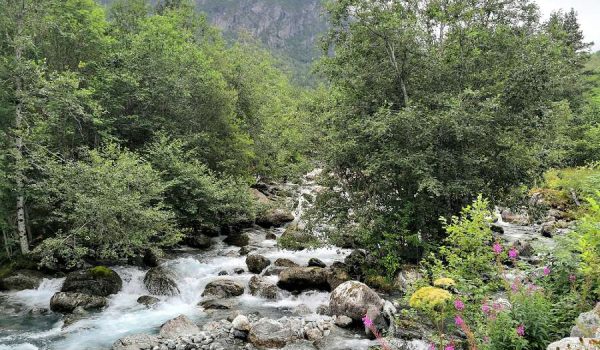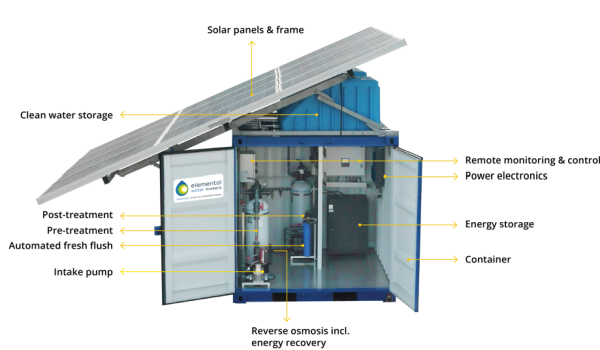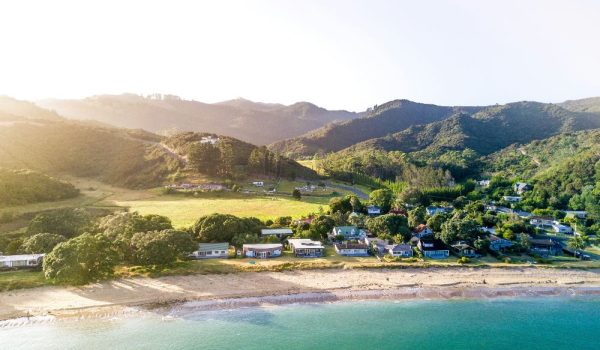While off-grid living promises communities greater control over the resources used, it is not without challenges. In fact, the road to self-sufficiency can be challenging if you don’t have reliable means to fulfil your daily chores. One significant necessity is a reliable and sustainable water source – a man’s primal need.
For coastal communities living off-grid, selecting the right water system is essential to ensuring daily needs are met without disruptions. Given that you need water for a majority of activities, it will be one of the important decisions you will make. While there are many options available, you have to consider their advantages and drawbacks in relation to water availability, environmental impact and long-term sustainability before investing in one.
How Do Off-Grid Water Systems Work?
Off-grid water systems are solutions independent of the centralised public water system – otherwise known as the grid water system. They usually source water from natural resources like open freshwater bodies or groundwater. Yet, they are similar in functionality, allowing you to collect, filter, purify, and store fresh water for use.
Primarily, off-grid systems source water from freshwater bodies like rivers or lakes, underground using wells, or in the case of coastal villages and towns, from oceans through desalination. Therefore, if you are opting for off-grid living, you need to be in close proximity to a reliable source of freshwater. For coastal villages and towns where direct freshwater may not be an option, desalination can be the ideal alternative solution.
People can opt for off-grid water solutions for a myriad of reasons like public utilities being inaccessible or unreliable, concerns regarding water quality, or purely for self-sufficiency motives.
While there are many options for off-grid water solutions, the suitability of the system depends on the location, terrain conditions, availability of water sources, and environmental factors. Here are some common off-grid water solutions.
Groundwater Pump Systems
Groundwater systems use pumps to draw water from wells drilled into the ground to access an aquifer. It consists of water stored between rock layers underground, typically accessed through wells, aquifers, and springs.
How do groundwater systems work?
Pumps draw water from wells by drilling into the ground to access an aquifer in groundwater systems. You can purify and store it in water tanks. Alternatively, if groundwater naturally flows through an open source like a spring, people can collect it directly without drilling.
The cost of drilling wells can be costly. However, groundwater is a cleaner and reliable source to fulfil your freshwater needs. Still, rainfall plays a major role in its availability. Without precipitation for prolonged periods, it can be scarce in supply. Another concerning problem associated with groundwater in coastal areas is increased salinisation. Due to climate change, sea levels are on the rise and intrusion of seawater can make freshwater underground undrinkable.
Rainwater Harvesting Systems
Sourcing freshwater from rain is a long-standing practice, especially in coastal areas that receive sufficient rainfall and have limited access to fresh water.
How do they work?
Rainwater is harvested using special gutters installed on roofs or from specially designed catchment surfaces. The collected water then goes through a filtration process to remove any bacterial growth or other pollutants present before being directed to a water storage tank. Once stored, it can be obtained whenever needed for varying purposes.
Despite the initial investment, rainwater harvesting is a cost-effective and eco-friendly water system for remote areas. Still, the biggest drawback remains in its unreliability. Climate change has aggravated the drought conditions and in areas that don’t receive frequent rain, this source can be very unreliable.

No Chemicals
Only manufacturer in the industry
100% Solar
Hybrid system, can be fully powered by solar energy
Systems Dependant on Open Freshwater Sources
Another option for off-grid living are natural freshwater bodies like rivers, lakes, and streams. If the source is located at a higher elevation, it is easier to obtain water. Coastal properties that have a reliable source nearby can obtain freshwater this way and once purified, it’s clean and safe for consumption.

How do these water systems work?
The system diverts water from the source to the property through dedicated pipes or other channels, directing it to a treatment facility where it is filtered and purified to remove contaminants. After the treatment, it can be distributed to the surrounding homes or properties.
While they are a cheaper and sustainable way to fulfil your freshwater requirements, weather conditions like severe drought can affect their replenishment. If excess water is drawn from these open freshwater bodies, they can deplete and lead to a water shortage. Also, if the water source is polluted, it can cause health issues.
Solar Desalination Water Systems

The coastal area you reside in may not have ready access to the above sources or you find them unreliable given the unpredictable weather conditions and growing water stress. Either way, you have an advantage over off-grid residents who live inland!
If you didn’t know already, it’s possible to effectively convert seawater to freshwater that’s completely clean and safe for consumption. With reverse osmosis, the salt content and other substances present in substances can be removed from water molecules. The reason why desalination hasn’t been widely used, especially at the residential level, is because the traditional desalination water systems are costly and consume a lot of energy.
However, solutions like solar-powered solar desalination systems overcome these issues. People are increasingly adopting them as one of the best solutions for off-grid living, owing to the many benefits they offer.
How do desalination water systems work?
Here’s how seawater converts to freshwater with the process of reverse osmosis.
- Collecting Seawater – Pump seawater into the system.
- Filtration and Pre-Treatment – Filter out large particles like sand and sediment
- Solar Energy Conversion – Use solar panels or thermal systems for energy.
- Desalination – Separate salts from water molecules utilising a filtration membrane and water pressure to produce fresh water.
- Post-Treatment and Mineralization – Add minerals to improve the quality of drinking water.
- Water Storage – Stores purified water in tanks.
- Brine Disposal – Safely dispose of salt-concentrated byproducts.
EWM designed the off-grid solar desalination plant as a plug-and-play solution. The containerized water system is very easy to install and requires less maintenance owing to the use of sturdy materials. It’s perfect for off-grid coastal communities.
The EWM system runs on renewable energy, making it a sustainable and eco-friendly water solution. With the abundance of seawater, you never have to worry about running out of water. Whether you don’t have access to a reliable grid water supply or want to go off-grid, this is a perfect choice.
Conclusion
Ultimately, the most suitable water system for off-grid living depends on your locality, weather, and water capacity requirements. For communities in coastal areas, implementing a solar-powered water system cuts the costs of traditional desalination, streamlining the entire process of obtaining fresh water that is both safe and tastes great.
Having potable water readily available at all times has a positive impact that goes well beyond words. From improving hygiene to massively reducing the amount of plastic used as people would not need to purchase bottled water, and even encouraging tourism that would otherwise be turned off by the lack of safe water.
At Bluemont, we are the sole distributors of EWM’s water desalination systems in Australia, New Zealand, and the Pacific Islands. To find out more about the applications of EWM’s water desalination systems for off-grid living, call +61 2 9091 0360, email sale@avjenvironmental.com, or submit a contact form. Looking forward to hearing from you.
